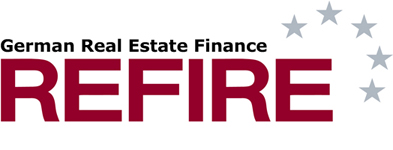
© Tiberius Gracchus - Fotolia.com
German logistics real estate
Some €917m were invested in portfolio transactions in the half, the largest deal of which was the purchase of 10 assets by a joint venture of UK logistics specialist Segro and the Canadian Public Sector Investment Board for €300m from Tristan Capital Partners.
The investment market for German logistics properties remains on course to break all records this year. Property advisors BNP Paribas Real Estate put the transaction volume in the first half of the year at €2.1bn, up 60% on last year’s first half; along with other broker houses, the group is forecasting logistics turnover for the full year of over €3bn. The sector is currently enjoying a share of 13% of all commercial property investment, a near-doubling from last year’s 7%.
On BNPPRE’s figures, the lack of available properties in the big cities has seen the big cities’ share fall by 15% to €499m over the first half. While traditional hotspots such as Munich (€65m), Frankfurt (€49.5m) and Düsseldorf (€41m) have seen big falloffs in volume, although Hamburg (€164m), Cologne (€69m), Berlin (€55m) and Leipzig (€54m) are all well ahead of last year's numbers
We’ve got slightly different figures from Colliers, who put figures for the first half year up 55% to €1.7bn, and who forecast €2.5bn in deals for the full year. What does seem clear is that the German market has been significantly influenced by international investors, particularly Anglo-Saxon investors: according to Colliers International, foreign buyers boosted their share of all investment to almost 67% (up from 37% in 2013). The appeal of German logistics is due to the strategic location, its market size and status as Europe’s economic powerhouse, say the Colliers researchers.
Some €917m were invested in portfolio transactions in the half, the largest deal of which was the purchase of 10 assets by a joint venture of UK logistics specialist Segro and the Canadian Public Sector Investment Board for €300m from Tristan Capital Partners.
“The continued high demand for logistics assets lead to a significant year-on-year fall in prime yield for class A, rare assets in the top locations,” said Colliers head of research for Germany Andreas Trumpp. Average yield across the Berlin, Düsseldorf, Frankfurt, Hamburg, Munich and Stuttgart regions came to 6.88%. Yield falls ranged from 40bp in Düsseldorf to 6.75%, to no changes in Berlin (7.3%) and Hamburg (7.2%).
Leading the category of logistics property is newly-built cross-dock facilities, particularly XXL buildings for the big courier and delivery companies, increasingly under pressure to offer Same Day Delivery or even Same Hour Delivery. There also appears to be renewed interest in older-style warehouses for conversion to modern specs, particularly those close to big cities, because of this increased demand for internet-driven instant or near-immediate delivery.
Another factor also comes into play in limiting the amount of greenfield space available for new-build facilities. The German government, as part of its sustainability strategy, is targeting a “30 hectare per day” goal by 2020, for the amount of new land that can be zoned for commercial, residential or logistical use. The current level is 70 hectares per day, so getting new building permits is getting harder. This is also helping to put a premium on conversion of older facilities.
Meanwhile, fund manager SEB Asset Management is taking advantage of the strong market demand for logistics assets to dispose of its entire European logistics holdings from across several of its funds. The buyer, after a structured bidding procedure, is Logicor, private equity group Blackstone’s logistics platform in Europe, who bought 18 separate assets in eight countries with a total lettable area of 434,000 sqm, an average occupancy rate of 85%, and a remaining average lease duration of 3.8 years. The price was said to be €275m, just slightly below SEB’s book valuation.
Three of the assets, valued at €37m, are being sold out of SEB’s liquidating open-ended fund SEB ImmoInvest (of w3hich two are from Germany – Hannover and Dietzenbach), ten assets valued at €168m are coming from SEB’s ImmoPortfolio Target Retrun Fund (including one from Langenfeld in Germany), four assets valued at €62m are from the SEB Global Property Fund, while the remaining asset is from an SEB Spezialfonds.
In another future sale, property broker NAI Apollo has been hired by TREI Real Estate, the property arm of German family-owned retail grocer Tengelmann Group, to sell a portfolio of 10 logistics facilities across the country, valued at about €200m. The portfolio has over 425,000 sqm of lettable space including the cities of Hamm, Kerpen, Berlin, Bottrop and Tuningen.
“The objective is to find a buyer for the entire portfolio by the end of the year,” NAI apollo said in a statement, without giving a guide price for the sale.
TREI Real Estate owns 489 assets in Germany and six other European countries (Poland, Czech Republic, Slovakia, Hungary, Austria and Portugal). The company invests in commercial and residential properties and is a developer of Vendo retail parks in Central and Eastern Europe.
